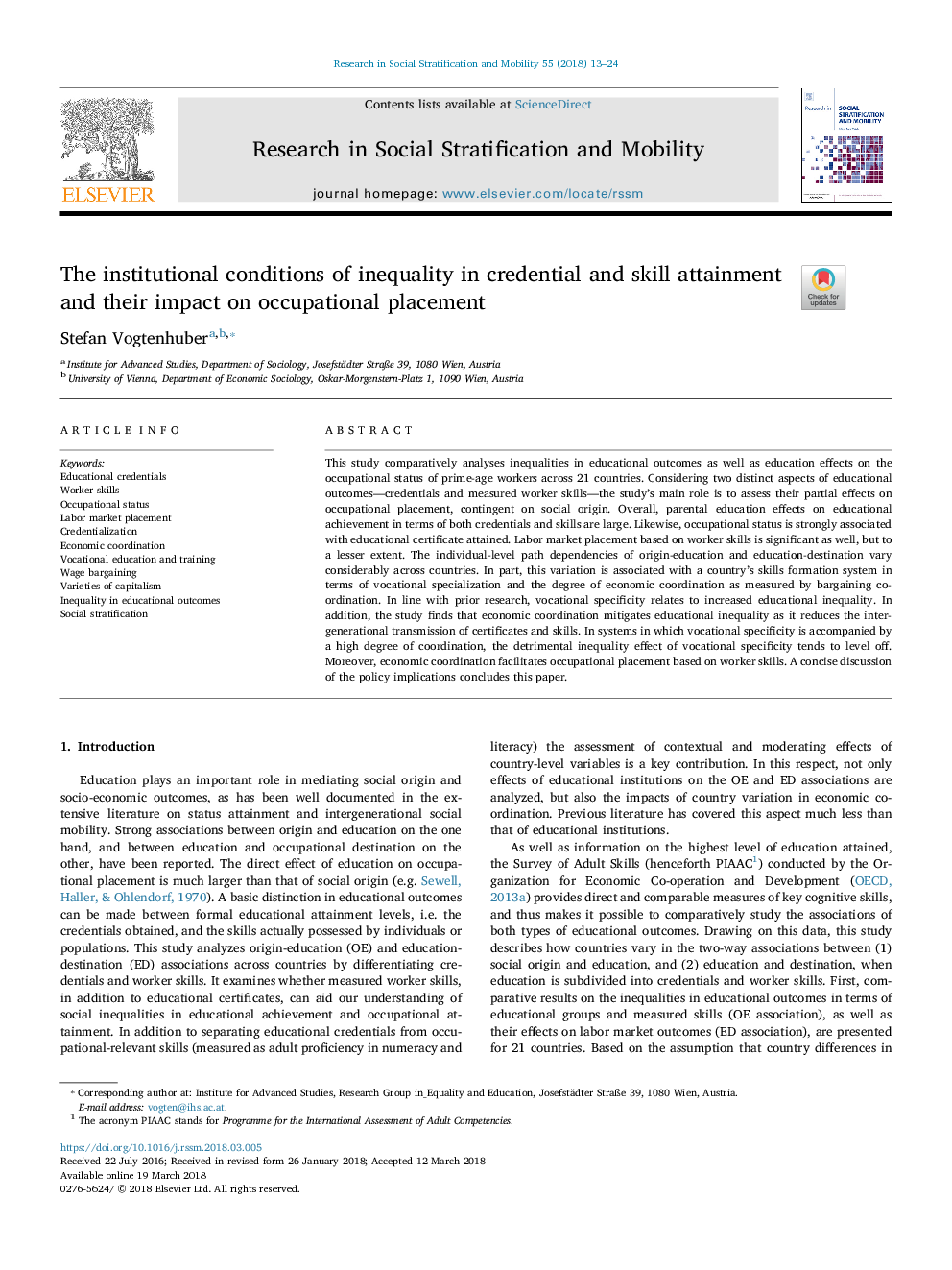ترجمه فارسی عنوان مقاله
شرایط سازمانی نابرابری در رسیدن به اعتبار و مهارت و تأثیر آنها بر جای گذاری شغلی
عنوان انگلیسی
The institutional conditions of inequality in credential and skill attainment and their impact on occupational placement
| کد مقاله | سال انتشار | تعداد صفحات مقاله انگلیسی |
|---|---|---|
| 102196 | 2018 | 12 صفحه PDF |
منبع

Publisher : Elsevier - Science Direct (الزویر - ساینس دایرکت)
Journal : Research in Social Stratification and Mobility, Volume 55, June 2018, Pages 13-24
ترجمه کلمات کلیدی
مدارک تحصیلی، مهارت کارگر، وضعیت شغلی، قرار دادن بازار کار، اعتباربخشی، هماهنگی اقتصادی، آموزش و پرورش و آموزش حرفه ای معامله با معاش، انواع سرمایه داری، نابرابری در نتایج آموزشی، طبقه بندی اجتماعی،
کلمات کلیدی انگلیسی
Educational credentials; Worker skills; Occupational status; Labor market placement; Credentialization; Economic coordination; Vocational education and training; Wage bargaining; Varieties of capitalism; Inequality in educational outcomes; Social stratification;

